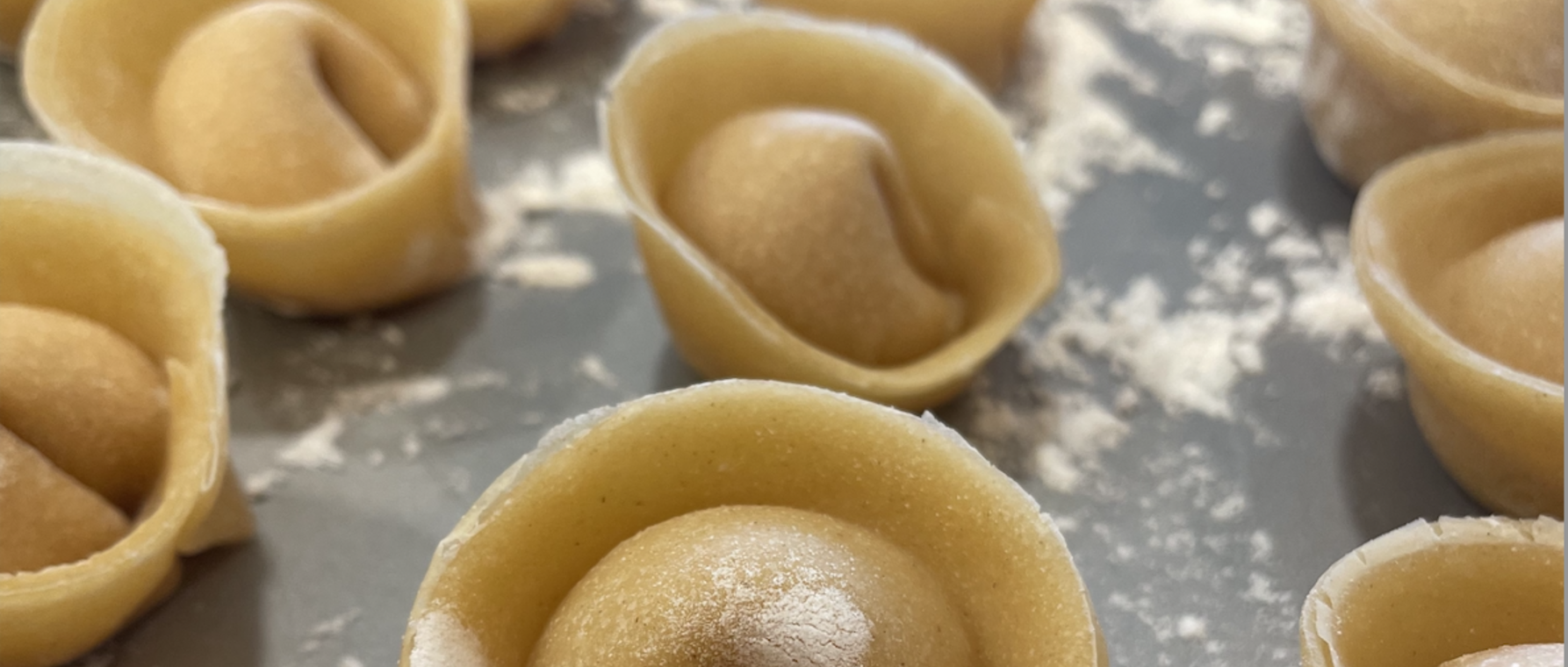Writing Lessons from a Home Pasta Maker
Notes from a Writer's Desk

Research at Risk: Since World War II, universities have worked with the federal government to create an innovation ecosystem that has yielded life-changing progress. Now much of that work may be halted as funding is withdrawn. Find out more about the threats to medical, engineering, and scientific research, as well as how Harvard is fighting to preserve this work—and the University's core values.
I have been making homemade pasta for more than 15 years. In that time, I have made every imaginable mistake. I have learned what matters and what doesn’t for making great pasta from scratch. Recently, I reflected on the lessons I have learned as a wannabe sfoglina and how many of them have also made me a better writer. In both pasta making and writing, there are advantages to simplicity, investing upfront care and energy, as well as being smart about timing. Here are the three biggest lessons you can learn about writing from pasta making:
1. Keep it Simple. Making a good pasta dough requires minimal ingredients and equipment. My recipe calls for only flour and eggs. For equipment, I use only a bench scraper and a long rolling pin.
There are certainly more complex recipes available that call for exotic and colorful ingredients, and you could fill an entire kitchen with equipment targeted toward the at-home pasta chef. However, pasta at its core is a humble dish. Nonne fed their families homemade pasta out of simple kitchens for generations before glossy Sur La Table catalogs and social media influencers convinced us we needed more.
Writing is similar. Today there are endless AI applications that promise to make your writing process easier and your output better. While there are certainly valuable uses for this technology, good writing requires little more than a word processor and an idea. Simplicity can be particularly helpful when struggling to clarify your own thoughts and argument. For example, free writing away from technology using an old-fashioned sheet of paper and a pen is sometimes the best way to get to the heart of your own argument.
2. Early Effort Matters. The first step to making a pasta dough is piling your flour directly onto your counter, creating a well in the flour and dumping in your eggs. Then, you slowly incorporate the flour from the well into the egg. This process is precarious. If you go too fast or take too much flour from the wrong spot, you can easily spring a leak. Your eggs will drain from the well and spread fast across your kitchen counter, running onto the floor and probably all over you. Getting this first step right takes focus, care, and patience.
Writing requires similar care and concern during the very early stages. When you’re first facing a blank word document, your argument usually isn’t fully set. If you’re not careful, your ideas can run away and spread haphazardly over your draft like the eggs poured over your counter. Having a process that helps solidify your argument is crucial to crafting a coherent and convincing piece of writing. This process may be outlining, storyboarding, free writing or something else entirely. But investing the time and energy to build a strong argument and narrative early in writing will make your finished piece more polished and persuasive.
3. Give It Time. After you’re done carefully adding your eggs into your flour, you have a pasta dough! However, it’s rough, bumpy, and kind of ugly. To make the dough smooth, you build gluten. To do this, you first knead the dough and then rest it. The rest is crucial. Food Network cooking competitions may have convinced you that you can go from nothing to a plate of homemade pasta in under an hour. However, I’d bet even Iron Chefs would take more time if they had it. After a little bit of kneading, I put my dough in the fridge and don’t look at it until the next day. By then, it’s a completely different dough. It looks and feels smoother, just for your having taken a step back and letting it be.
Time is equally as important for writing, and including active and inactive time is crucial. Investing sufficient time to make your draft usable is obviously a necessary step to writing. However, building in the time to let your draft breathe or rest is also key. By leaving your work alone, you give yourself and your brain space and perspective. When you return to your draft, it will look different. That sentence that you had been obsessing over may not seem so bad. Maybe you notice a new hole in your argument or a transition that just doesn’t flow like you thought it would. Time is one of the most important components to great writing, and being strategic about building inactive time into your writing schedule will improve any writing piece.
These lessons around simplicity, upfront effort, and timing have helped me make better homemade pasta as well as improve my writing. I recommend keeping them in mind the next time you approach a new writing project, or if you feel inspired to make some pasta dough at home.
Ready to book an appointment with FWC staff? Access the FWC intake form.
Get the Latest Updates
Join Our Newsletter
Subscribe to Colloquy Podcast
Simplecast




